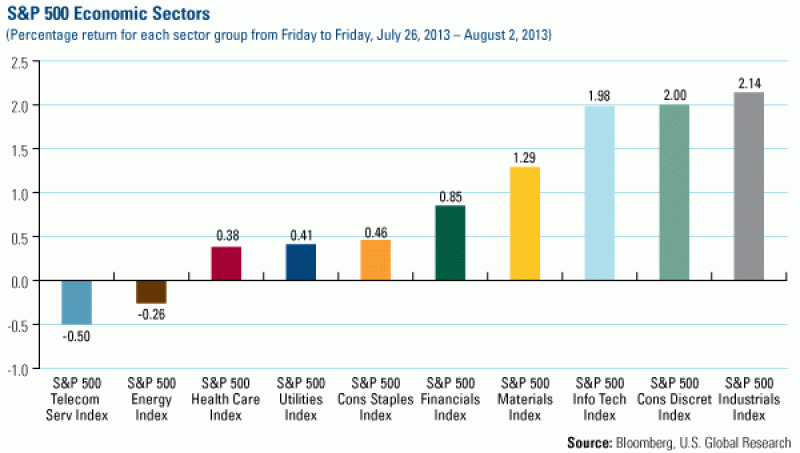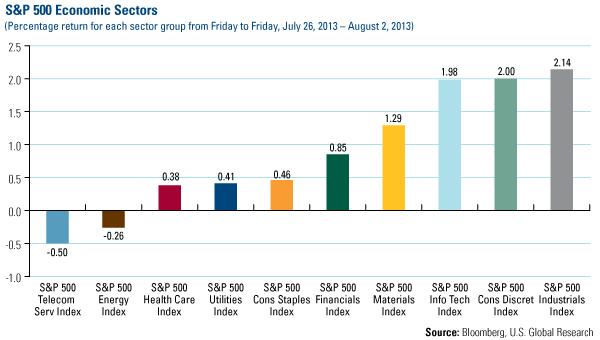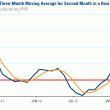Equity Market
The S&P 500 rose this week as the Fed acknowledged moderating economic growth. This growth will potentially delay the quantitative easing (QE) tapering that was widely expected to begin in September. Economic data was mixed, which helps sustain this “Goldilocks” environment of economic growth not being too hot or too cold, thus enabling continued monetary stimulus.
Strengths
- The industrial sector was the best performer this week as the ISM Manufacturing index jumped higher, along with similar indicators around the world, potentially boosting the prospect of a global economic recovery. The sector experienced broad based strength on these macro data points.
- The consumer discretion and technology sectors were also strong performers this week as cyclical sectors outperformed.
- Pitney Bowes Inc. was the best performer in the S&P 500 this week rising 21.08 percent as the company agreed to sell its management services unit to a private equity firm for $400 million in cash.
Weaknesses
- The telecom services sector was the worst performing sector this week as Verizon Communications was weak on general competition concerns concerning customer churn.
- The energy sector lagged as index heavyweights Exxon Mobil and Chevron reported disappointing earnings.
- The Mosaic Co. was the worst performer in the S&P 500 for the week, falling 22.11 percent. Urakali, a very large Russian potash producer, backed out of what is essentially a potash cartel, sending fertilizer companies around the world lower as potash prices are expected to move substantially lower.
Opportunity
- The current macro environment remains positive as economic data remains robust enough to give investors confidence in an economic recovery but not too strong as to force the Fed to change course in the near term.
- Money flows are likely to find their way into domestic U.S. equities and out of bonds and emerging markets.
- Earnings have generally been well received and earnings season continues into next week.
Threat
- A market consolidation could continue in the near term, as macro concerns could dominate for the next couple of weeks while the market waits for additional earnings reports.
- Higher interest rates are a threat for the whole economy, the Fed must walk a fine line and the potential for policy error is potentially large.
- With much of the significant economic data out of the way, the focus will be on the Fed and whether they will taper or not in September.













